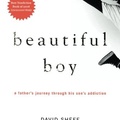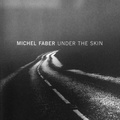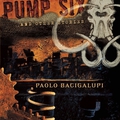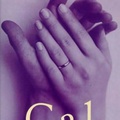Alice Munro: Too Much Happiness
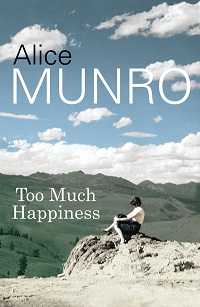 I had read some reviews of Alice Munro’s short story collections earlier. Of course I didn’t remember them too vividly, but I remembered them enough to be pretty sure that „too much happiness” was meant to be ironic here. And ironic it is – which is strange because Alice Munro doesn’t seem to be cruelly ironic at first sight. Or perhaps it’s more accurate to say that Munro isn’t really ironic on the level of words, but on the level of whole life-stories.
I had read some reviews of Alice Munro’s short story collections earlier. Of course I didn’t remember them too vividly, but I remembered them enough to be pretty sure that „too much happiness” was meant to be ironic here. And ironic it is – which is strange because Alice Munro doesn’t seem to be cruelly ironic at first sight. Or perhaps it’s more accurate to say that Munro isn’t really ironic on the level of words, but on the level of whole life-stories.
For instance, in the story called Dimensions the oppressed young wife puts up with his manic husband’s tyrannic behaviour and his constant abuses for years. When she cannot stand it any longer, she runs away from home and spends a single night at a friend’s place. When she goes back home the next morning, she finds that her husband irreparably ruined their lives during the night – and according to his passive aggressive claims, it’s all her fault because she shouldn’t have run away, anyway.
But it may also easily turn out that there’s something bitterly ironic in the relationship of seemingly happy couples. This is the case in the short story called Fiction, where the high-school’s brightest boy and girl get married and together they build a perfect life for themselves – and then it turns out that the exceedingly intelligent, calm and trustworthy husband prefers the company of his assistant – an ex-alcoholic woman with a troubled past – to that of his exceedingly intelligent and beautiful wife.
I won’t go into any more stories here because I guess it’s already evident from these brief summaries what Alice Munro’s stories are like: they are full of tension and dramatic potential – but there’s no real drama in them. Let me give you an example: in the story I mentioned above, one could easily write about what happens to the married couple when the wife realizes that her husband loves somebody else; or how the wife tries to save her marriage despite all odds; or what painful and ugly events occur during their divorce suite.
However, Alice Munro doesn’t write about any of these things, or only very little – in her short fiction world, life simply goes on. Divorces are followed by new marriages; disappointed, abused lovers keep on living a life of doubts and fears, on the remains of their pride and self-esteem; members of more or less dysfunctional families don’t reunite in a relieved, happy embrace but don’t break apart forever following a huge, desperate fight, either; and childhood friends who once thought they were forever linked through a shared secret spend their whole life apart from each other, and only meet again when one of them is already on her death-bed.
Life simply passes – sometimes there’s a little bit of happiness, then it passes, too; sometimes there are tragedies, too; everyone makes mistakes, and commits sins and crimes; but even if a heart breaks or a person gets embittered along the way, no-one actually dies because of a broken heart or broken spirits. And somehow this is more shattering, unsettling and „realistic” than any kind of loud, „dramatic” drama I can think of. Here, all the drama stays inside – and the characters spend their life in their own personal limbos. Slowly, quietly, telling white lies, and clinging to small and foolish hopes.

